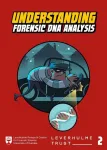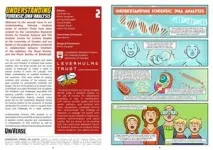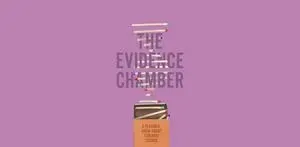(Press-News.org) Imagine being summoned as a juror in a murder trial. The expert responsible for analyzing DNA traces at the crime scene has just explained that they match the defendant’s profile. “Then the culprit must be them,” you think. At this point, however, the expert adds: “The sample, however, is partially degraded.” What does this mean? How does this information affect your judgment? The scientist further explains that there is a one-in-a-billion probability that other people could match the identified genetic profile. How significant is this new information? Is this probability high or negligible? What is your verdict now?
“The decisions being taken by members of juries are just so vitally important and often they’re shaped by their understanding of the forensic evidence that’s being presented,” explains Dr Andy Ridgway, Senior Lecturer in Science Communication at the University of the West of England, UWE Bristol, and one of the study’s authors. “They often have little to no science background and frequently lack prior knowledge of the forensic techniques they are expected to assess in making their decision.” This is a widespread issue, and scientific literature on the subject suggests that understanding of science in courtrooms is often quite limited.
The Evidence Chamber, the project within which the research described in JCOM was developed, was created precisely to explore how non-experts understand scientific evidence in judicial proceedings, combining forensic science, digital technology, and public engagement. The Evidence Chamber was developed by the Leverhulme Research Centre for Forensic Science at the University of Dundee (Scotland) in collaboration with Fast Familiar, a collective of digital artists specializing in interactive experiences. A team from UWE Bristol, including Izzy Baxter, a student studying for an MSc Science Communication at the time, was involved in analyzing the data collected during the research phase aimed at testing the use of comics as a tool for communicating forensic science.
The study involved about a hundred volunteers who participated as ‘jurors’ in mock trials. The participants participated in an interactive experience that involved different types of evidence; they listened to the expert witness testimony, which focused on DNA analysis and gait analysis (the study of a suspect’s walking pattern for identification). The jury discussion took place in two phases: “First, they received the expert witness testimony. They then discussed it and indicated whether they believed the defendant was guilty or not guilty at that point. After that, they were given access to the comics,” explains Heather Doran, researcher at the Leverhulme Research Centre for Forensic Science, University of Dundee, who was involved in the study. “This allowed us to see how the comics might influence their previous discussion and whether they provided any useful additional information.”
“We conducted an analysis of the discussions among jurors, one immediately after the expert testimony in court and another after they had read the comics,” explains Ridgway. To assess whether comics provided an advantage in comprehension, during the experimental phases, one group received only the traditional expert testimony, while the other had access to both the expert’s explanation and the comics.
The analysis confirmed the effectiveness of comics: participants who read the comics discussed the evidence in greater detail, showing increased confidence in their reasoning and conclusions. In the group that read the comics, jurors made more explicit references to scientific concepts and demonstrated a better ability to connect forensic science to their final decision. In contrast, in the groups that received only the oral explanation, more misinterpretations of the evidence emerged, with misunderstandings related to the meaning of probability and margins of error, whereas the comics helped clarify these concepts. Additionally, discussions in the groups with comics were more balanced and participatory, with greater interaction among jurors.
This experience demonstrates that comics can be a valuable tool for explaining forensic science in court, supporting jurors. It is important to emphasize that this type of material must be carefully designed. The scientific comics used in The Evidence Chamber were developed by specialists at the University of Dundee. “The University of Dundee has an historical link with comics, we worked with our Professor of Comics Studies and artists to create them” explains Doran. “Dundee, the city where the centre is located, has a history in comics. It’s the home of Beano the comic and Dennis the Menace. And the University of Dundee also offers comic courses, with which we have been collaborating for a long time.”
END
Explaining science in court with comics
Making forensic science accessible—one panel at a time.
2025-02-05
ELSE PRESS RELEASES FROM THIS DATE:
‘Living’ electrodes breathe new life into traditional silicon electronics
2025-02-05
Osaka, Japan – High-speed electronic devices that do not use much power are useful for wireless communication. High-speed operation has traditionally been achieved by making devices smaller, but as devices become smaller, fabrication becomes increasingly difficult. Have we reached a dead end?
Not yet! A research team at Osaka University is exploring another way to improve device performance: placing a patterned metal layer, i.e., a structural metamaterial, on top of a traditional substrate, e.g., silicon, to accelerate ...
One in four chance per year that rocket junk will enter busy airspace
2025-02-05
There’s a 26 per cent annual chance that space rocket junk will re-enter the atmosphere and pass through a busy flight area, according to a recent UBC study.
While the chance of debris hitting an aircraft is very low, the research highlights that the potential for uncontrolled space rocket junk to disrupt flights and create additional costs for airlines and passengers is not.
Space junk disrupting air traffic is far from unheard of. In 2022, a re-entering 20-tonne piece of rocket prompted Spanish and French aviation authorities to close parts ...
Later-onset menopause linked to healthier blood vessels, lower heart disease risk
2025-02-05
Women who go through menopause later in life have healthier blood vessels for years to come than those who go through it earlier, according to new University of Colorado Boulder research.
The study, published in the American Heart Association journal Circulation Research, offers new insight into why females who stop menstruating at age 55 or later are significantly less likely to have heart attacks and strokes in their postmenopausal years.
Arriving just in time for Women's Heart Health Month, in February, the findings could help lead to new therapies, including dietary interventions, to reduce risk of heart ...
New study reveals how RNA travels between cells to control genes across generations
2025-02-05
RNA-based medicines are one of the most promising ways to fight human disease, as demonstrated by the recent successes of RNA vaccines and double-stranded RNA (dsRNA) therapies. But while health care providers can now successfully develop drugs that use dsRNA to accurately target and silence disease-causing genes, a major challenge remains: getting these potentially life-saving RNA molecules into cells efficiently.
A new study published in the journal eLife on February 4, 2025, may lead to breakthroughs in RNA-based drug development. University of Maryland researchers used microscopic roundworms ...
Women health sector leaders good for a nation’s wealth, health, innovation, ethics
2025-02-05
Women health sector leaders are good for a nation’s wealth, health, innovation, and ethics, among other things, finds a review of the available evidence, published in the open access journal BMJ Global Health.
Yet despite their unique and positive impact, they are a major underused resource, particularly in low and middle income countries, say the researchers, who call for more and sustained investment to maximise women’s potential and reap the benefits of their contribution.
Despite making up 70% of the healthcare workforce, as a whole, and 90% of the nursing ...
‘Good’ cholesterol may be linked to heightened glaucoma risk among over 55s
2025-02-05
‘Good’ (HDL) cholesterol, usually considered to be beneficial for health, may be linked to a heightened risk of the serious eye condition, glaucoma—at least among the over 55s— suggest the results of a large observational study, published online in the British Journal of Ophthalmology.
Paradoxically, ‘bad’ (LDL) cholesterol, usually regarded as harmful to health, may be associated with a lower risk of glaucoma, a condition that damages the optic nerve, potentially leading to irreversible sight ...
GLP-1 drug shows little benefit for people with Parkinson’s disease
2025-02-05
The GLP-1 drug, exenatide, has no positive impact on the movement, symptoms or brain imaging of people with Parkinson’s, finds a new study led by UCL researchers.
The world’s largest and longest trial of exenatide in people with Parkinson’s disease was funded by the National Institute for Health & Care Research (NIHR) with support for sub-studies from Cure Parkinson’s and Van Andel Institute.
For their research, published in The Lancet, the team designed a randomised controlled phase 3 trial to definitively determine whether exenatide use was associated with any benefit in people with Parkinson’s and ...
Generally, things really do seem better in morning, large study suggests
2025-02-05
Generally, things really do seem better in the morning, with clear differences in self-reported mental health and wellbeing across the day, suggest the findings of a large study published in the open access journal BMJ Mental Health.
People generally wake up feeling in the best frame of mind in the morning but in the worst around midnight, the findings indicate, with day of the week and season of the year also playing their part.
Mental health and wellbeing are dynamic in nature, and subject to change over both short and extended periods, note the researchers. But relatively few studies have looked at how these might change over the course of the day, and those studies that ...
Juicing may harm your health in just three days, new study finds
2025-02-04
“Most people think of juicing as a healthy cleanse, but this study offers a reality check”
CHICAGO --- Think your juice cleanse is making you healthier? A new Northwestern University study suggests it might be doing the opposite. The study, recently published in Nutrients, found that a vegetable and fruit juice-only diet — even for just three days — can trigger shifts in gut and oral bacteria linked to inflammation and cognitive decline.
How was the study conducted?
Northwestern scientists studied three groups of healthy adults. One group consumed only juice, another had juice with whole ...
Forest landowner motivation to control invasive species depends on land use, study shows
2025-02-04
URBANA, Ill. – Many U.S. forests are privately owned, particularly in the Eastern and North Central part of the country. This makes control of invasive plants and pests challenging because efforts must be coordinated across landowners. A new study from the University of Illinois Urbana-Champaign explores how differences in ownership motivation affects willingness to control, and how economic incentives can be implemented most efficiently.
“Some own the land for recreational purposes, some own it because they want to produce timber, and some are a combination of both. If one landowner controls invasive species ...
LAST 30 PRESS RELEASES:
For solar power to truly provide affordable energy access, we need to deploy it better
Middle-aged men are most vulnerable to faster aging due to ‘forever chemicals’
Starving cancer: Nutrient deprivation effects on synovial sarcoma
Speaking from the heart: Study identifies key concerns of parenting with an early-onset cardiovascular condition
From the Late Bronze Age to today - Old Irish Goat carries 3,000 years of Irish history
Emerging class of antibiotics to tackle global tuberculosis crisis
Researchers create distortion-resistant energy materials to improve lithium-ion batteries
Scientists create the most detailed molecular map to date of the developing Down syndrome brain
Nutrient uptake gets to the root of roots
Aspirin not a quick fix for preventing bowel cancer
HPV vaccination provides “sustained protection” against cervical cancer
Many post-authorization studies fail to comply with public disclosure rules
GLP-1 drugs combined with healthy lifestyle habits linked with reduced cardiovascular risk among diabetes patients
Solved: New analysis of Apollo Moon samples finally settles debate about lunar magnetic field
University of Birmingham to host national computing center
Play nicely: Children who are not friends connect better through play when given a goal
Surviving the extreme temperatures of the climate crisis calls for a revolution in home and building design
The wild can be ‘death trap’ for rescued animals
New research: Nighttime road traffic noise stresses the heart and blood vessels
Meningococcal B vaccination does not reduce gonorrhoea, trial results show
AAO-HNSF awarded grant to advance age-friendly care in otolaryngology through national initiative
Eight years running: Newsweek names Mayo Clinic ‘World’s Best Hospital’
Coffee waste turned into clean air solution: researchers develop sustainable catalyst to remove toxic hydrogen sulfide
Scientists uncover how engineered biochar and microbes work together to boost plant-based cleanup of cadmium-polluted soils
Engineered biochar could unlock more effective and scalable solutions for soil and water pollution
Differing immune responses in infants may explain increased severity of RSV over SARS-CoV-2
The invisible hand of climate change: How extreme heat dictates who is born
Surprising culprit leads to chronic rejection of transplanted lungs, hearts
Study explains how ketogenic diets prevent seizures
New approach to qualifying nuclear reactor components rolling out this year
[Press-News.org] Explaining science in court with comicsMaking forensic science accessible—one panel at a time.





